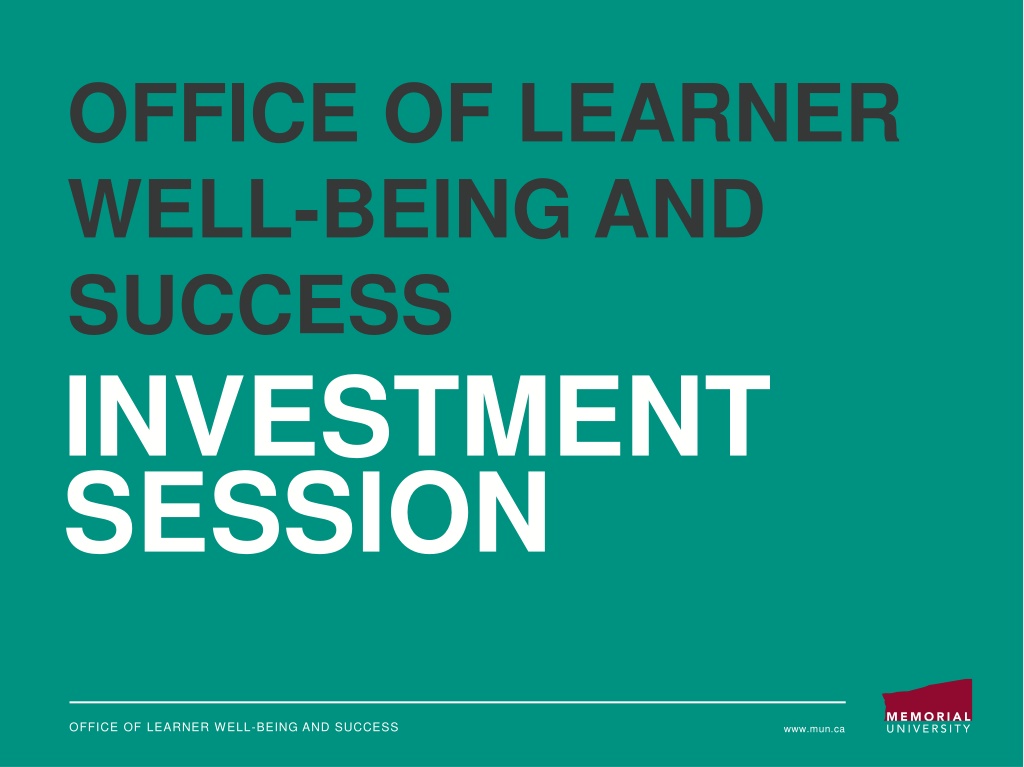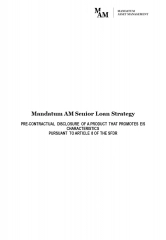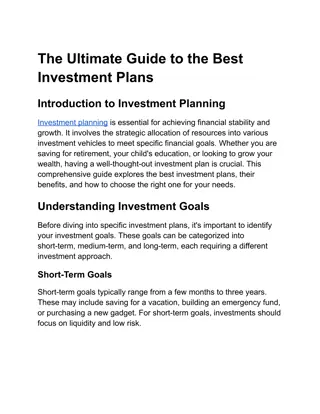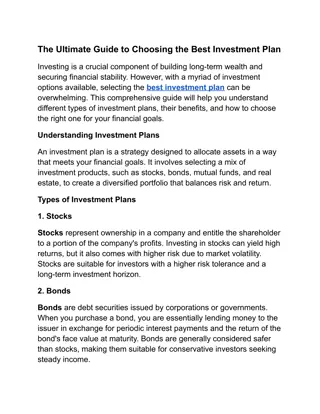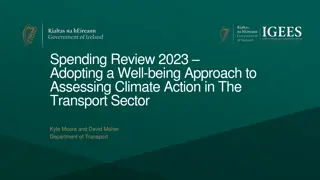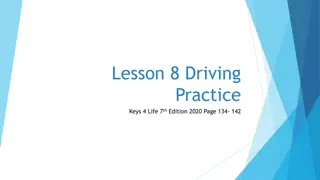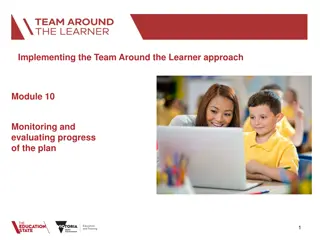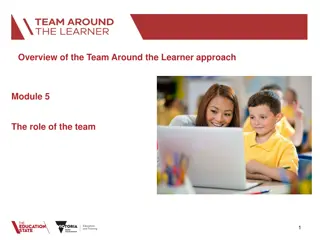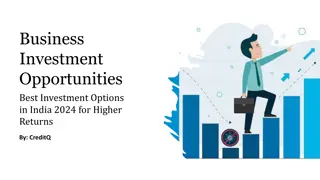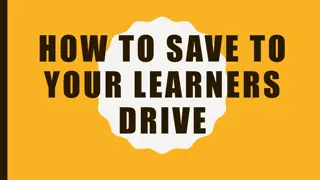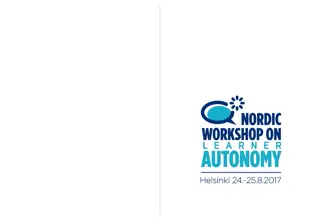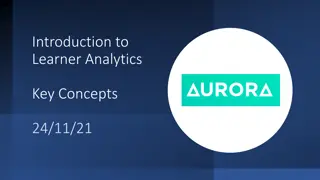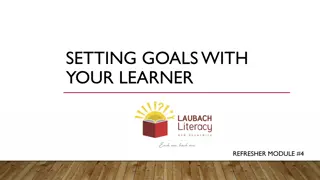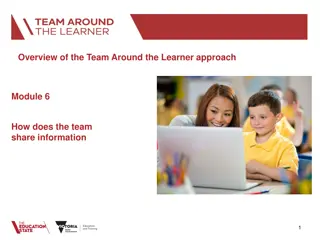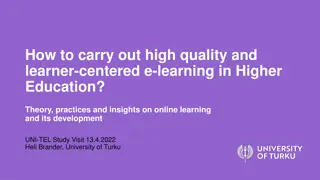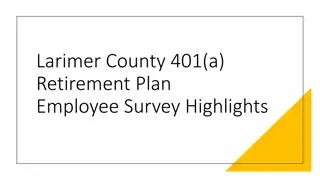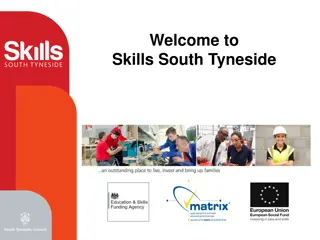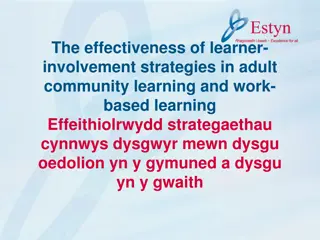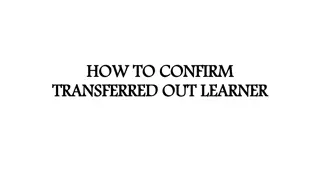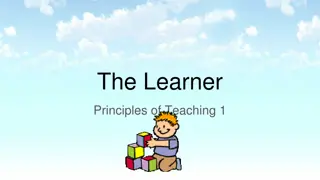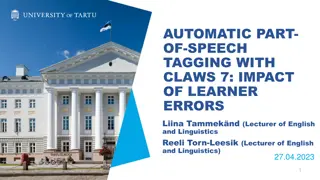Understanding Investment Options for Learner Well-Being
Explore different investment tools like Registered Retirement Savings Plans (RRSP) and Tax-Free Savings Accounts (TFSA) to save money with various tax incentives. Learn about stocks, bonds, ETFs, mutual funds, and more to make informed financial decisions for your future financial well-being.
Download Presentation

Please find below an Image/Link to download the presentation.
The content on the website is provided AS IS for your information and personal use only. It may not be sold, licensed, or shared on other websites without obtaining consent from the author. Download presentation by click this link. If you encounter any issues during the download, it is possible that the publisher has removed the file from their server.
E N D
Presentation Transcript
OFFICE OF LEARNER WELL-BEING AND SUCCESS INVESTMENT SESSION OFFICE OF LEARNER WELL-BEING AND SUCCESS www.mun.ca
ITEMS OF DISCUSSION Registered savings accounts Investment Options Risk Appetite Investment/Management Fees A Word From The Wise Q & A with Financial Advisors OFFICE OF LEARNER WELL-BEING AND SUCCESS www.mun.ca
REGISTERED SAVINGS ACCOUNTS Registered Retirement Savings Plan (RRSP) is not really a plan . Tax Free Savings Account (TFSA) Its not really an account Both are investment tools that gives different tax incentives to save money OFFICE OF LEARNER WELL-BEING AND SUCCESS
REGISTERED RETIREMENT SAVINGS PLAN (RRSP) It is not a plan, it is a savings program/tool and you decide how the money gets invested savings account, bonds/stocks, Exchange Traded Fund (ETFs), mutual funds, crypto, etc. Any money you invest now gives you a tax break this tax year (money back in taxes) Contribution room increases every year (18% of income) and carries forward The assets in the RRSP are not taxed until you withdraw funds Good if you need discipline You pay taxes at the end when you withdraw from it OFFICE OF LEARNER WELL-BEING AND SUCCESS
TAX FREE SAVINGS ACCOUNT (TFSA) It is not an account, it is a savings program/tool and you decide how the money gets invested savings account, bonds/stocks, Exchange Traded Fund (ETFs), mutual funds, crypto, etc No tax break Increases annually, last increase was $6,000 tied to inflation More flexible, no penalty for withdrawing funds, and you get back the contribution space the next calendar year Investments can grow interest free You pay taxes at the beginning OFFICE OF LEARNER WELL-BEING AND SUCCESS
WHAT ARE MY OPTIONS? Stocks: own part of a business some pay dividends some don t Bonds: You lend your money to a business can be traded, can increase in value Guaranteed Investment Certificate (GICs): Guaranteed return over a period of time Mutual funds: actively managed bucket of items like stocks and bonds typically high fees An exchange traded fund (ETF): Similar to mutual funds, but only tracks specific assets or indexes typically lower fees Crypto currency: prices vary greatly Other: real estate, private business ideas, other valuables OFFICE OF LEARNER WELL-BEING AND SUCCESS
WHAT DO I INVEST IN? Know your risk appetite Do you need access to your investments in the near term, ie do they need to be liquid? Are you okay with the value of your investments going up and down? Do you have enough knowledge (and time) to invest yourself as this is often cheaper? OFFICE OF LEARNER WELL-BEING AND SUCCESS
FINANCIAL ADVISORS The terms financial advisor and financial planner are used broadly. These terms don t always mean that a person has specific qualifications, expertise, or certifications. Outside of the province of Quebec, anyone can call themselves a financial advisor or financial planner. They ALWAYS have sales goals Some are paid by commission that depends on what they sell you Some are fee based ie you pay a flat fee regardless of what they sell you Robo Advisors: Less personal (not actually a robot) but typically lower fees/cost OFFICE OF LEARNER WELL-BEING AND SUCCESS www.mun.ca
INVEST OR PAY OFF DEBT? 1 2 3 4 5 6 Pay off credit cards Pay off other debt with interest higher than 3% Max out employee contribution Max out TFSA Max out RRSP Look into other options Whole life insurance, etc OFFICE OF LEARNER WELL-BEING AND SUCCESS www.mun.ca
A WORD FROM THE WISE Dr. Angus Hartery Associate Professor, Discipline of Radiology OFFICE OF LEARNER WELL-BEING AND SUCCESS www.mun.ca
Q & A SESSION WITH FINANCIAL ADVISERS Chris Hamilton Insure Med Financial - chris@insuremed.ca Ben Mayhew- MD Financial Management - Ben.Mayhew@md.ca Denise Penton RBC - denise.penton@rbc.com Mike Kidney Live By Wealth - Mike@livebywealth.ca David Smith - Scotiabank - davidj.smith@scotiabank.com David Holwell CIBC david.Holwell@cibc.ca Donna McGrath NL Credit Union - sgoodyear@nlcu.com OFFICE OF LEARNER WELL-BEING AND SUCCESS
